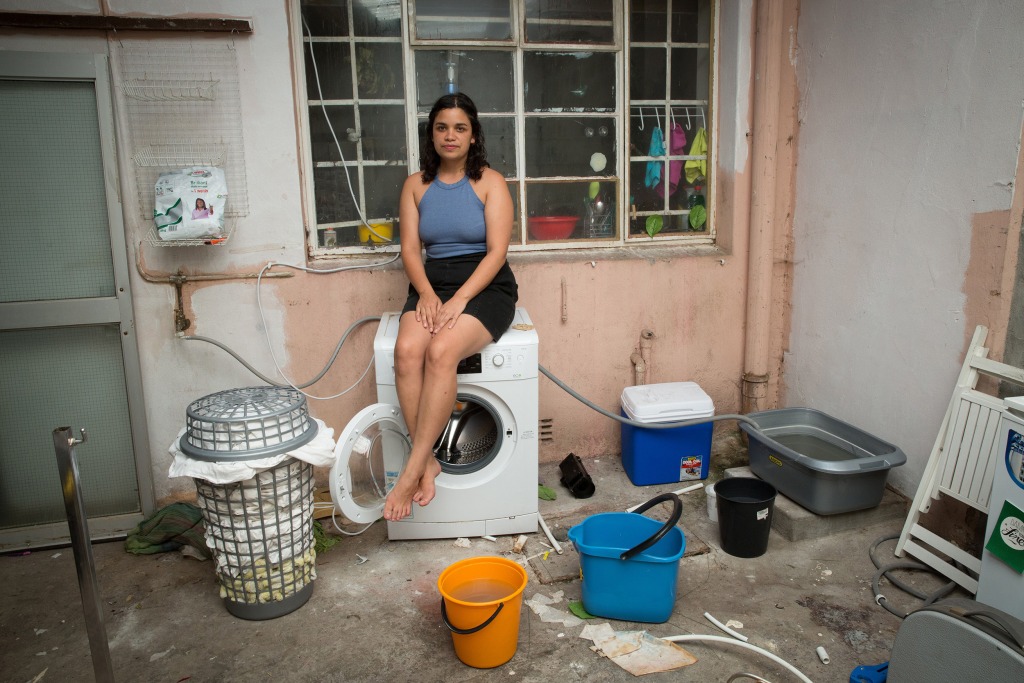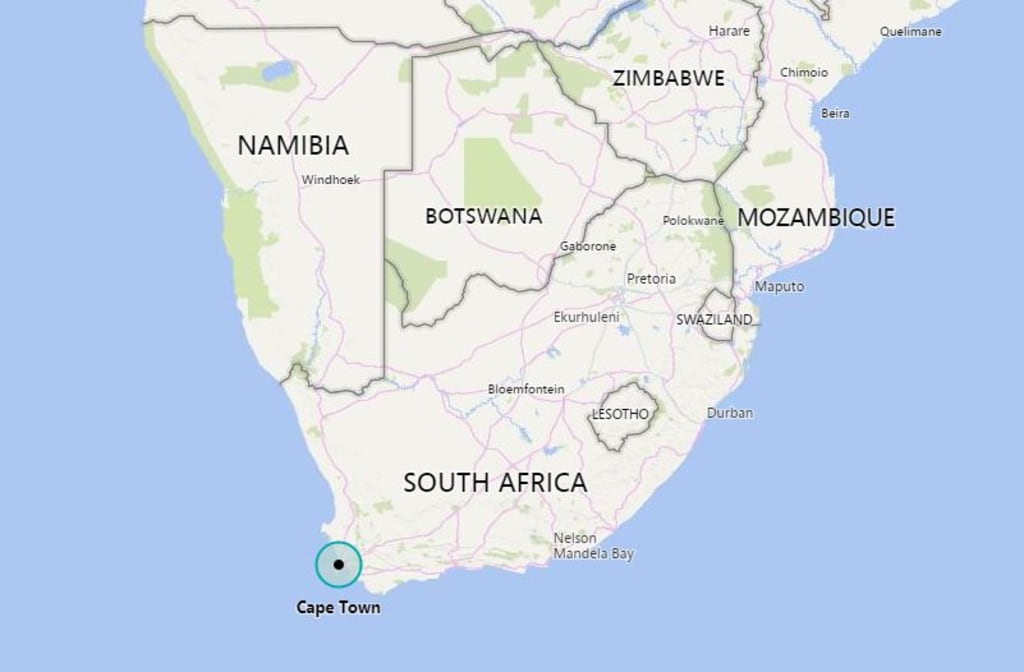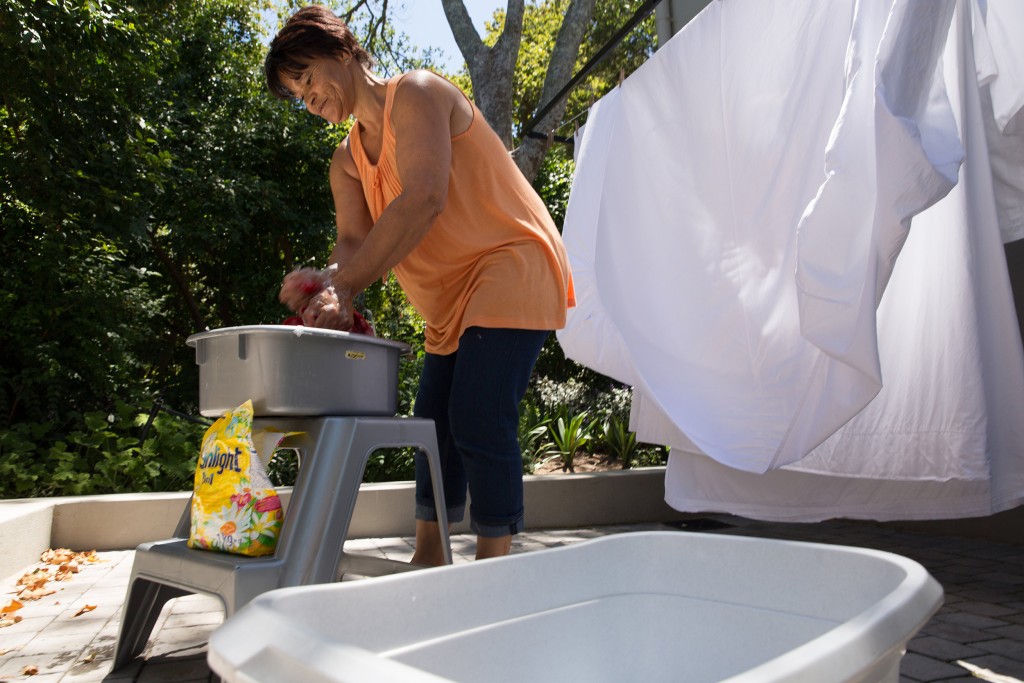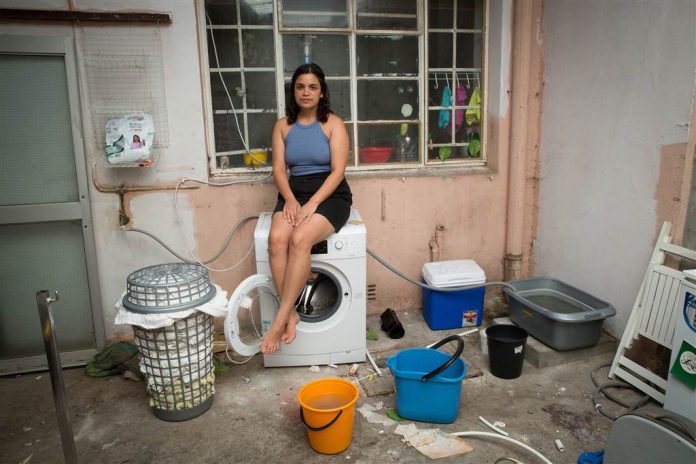Buckets of gray water are scattered around Sitaara Stodel’s apartment: in the kitchen, in the bathroom, in the hallways and in her laundry room.
She uses water collected from her morning shower and the washing machine to flush the toilet and keep potted plants alive. To cut her water usage even further, Stodel has stopped shaving her legs and uses only a tiny amount to brush her teeth.
Her water-saving measures are becoming the norm in South Africa’s second-largest city, which is in the midst of a years-long drought. Authorities warn Cape Town is less than three months away from the situation becoming so dire that it must shut off its taps, an eventuality known as “Day Zero.”

Based on current projections, “Day Zero” is forecast for April 12, according to officials. That would make Cape Town the world’s first major city to run dry.
The prospect that large sections of South Africa’s showcase city, which features a seafront and is famously perched not far from where the Atlantic and Indian Oceans meet, might have to cope without running water has induced anxiety as well as resolve among Cape Town’s nearly 4 million residents.
“I’m constantly thinking about running out of water and worrying about ‘Day Zero,’” Stodel, 26, said. “I’m even having nightmares about wasting water. The other day I had a dream that I took a long shower by mistake!”

From Feb. 1, Cape Town has told residents they can use no more than 13.2 gallons of drinking water a day in an effort to avoid “Day Zero.” To put that in perspective, the average American uses an estimated 80 and 100 gallons of water daily, according to the U.S. Geological Survey.
If “Day Zero” does arrive, many people would have to go to collection points guarded by security forces for a daily ration of 6.6 gallons.
Taps would continue to run in hospitals and provisions would be made for schools, some of which can pump water from boreholes.
Communal taps in poor areas known as informal settlements — or shanty towns — likely would continue to run to avoid the threat of disease.

Some downtown areas could also be exempt and not cut off for the sake of tourism and business.
“I’m really scared now. It’s dry, dry, dry,” said housekeeper Petronella van Schalkwyk, who prides herself on coming up with inventive ways to save water.
She now baths in a plastic bucket and has moved her bathtub outside where it can catch water should it rain. To clean, van Schalkwyk uses two spray bottles, one with soap and one with water so she doesn’t have to fill a bucket.
“Many people tell me they think I’m crazy for doing all these things to save water at home. They just don’t see the reality of this problem,” she said from her employer’s house in Cape Town’s southern suburbs.

But even with “Day Zero” looming, officials say 60 percent of Cape Town residents are still not complying with current restrictions.
“I think that there may be an apathy that’s setting in and a savings fatigue, but we need to urge residents that further savings are still crucial,” said Xanthea Limberg, a member of the mayoral committee for water oversight. “Our survival and livelihood depends on it.”
The city is also monitoring households’ water use and issuing fines to those that use too much.
Worried residents have taken to social media and started informing the city when they see someone breaking water restrictions.
by
































